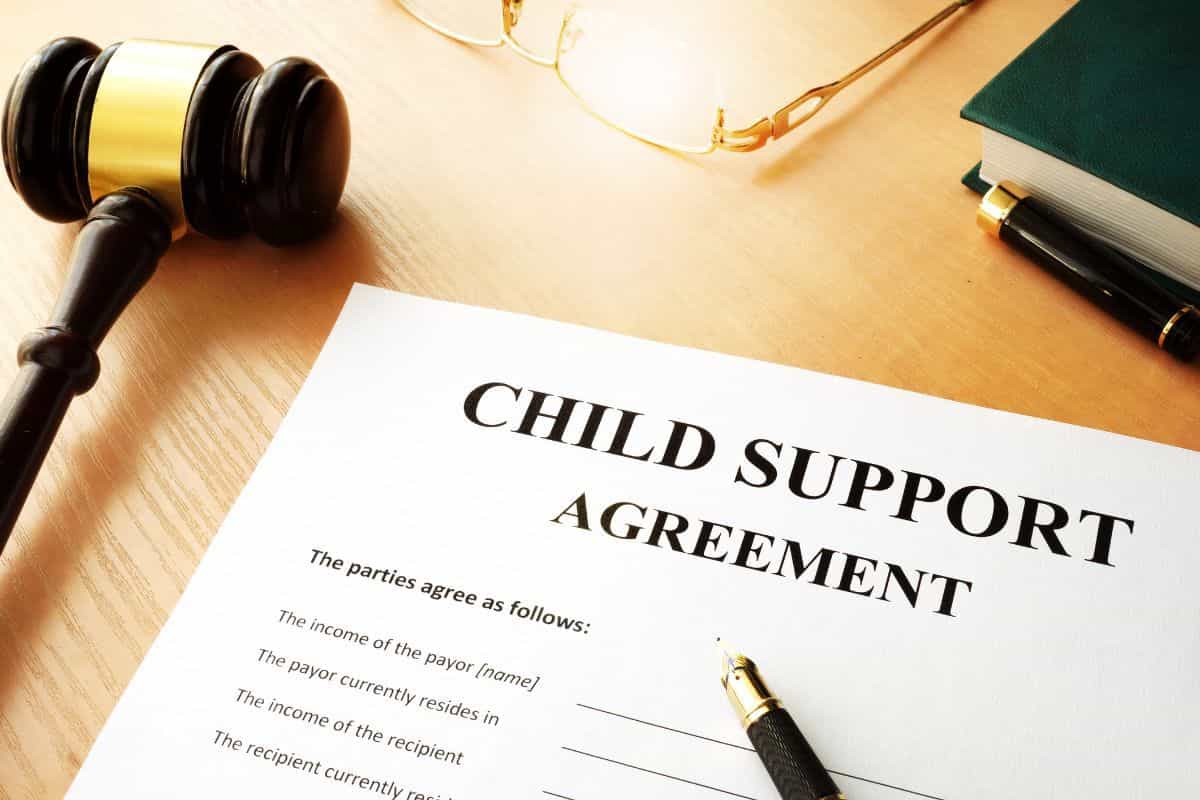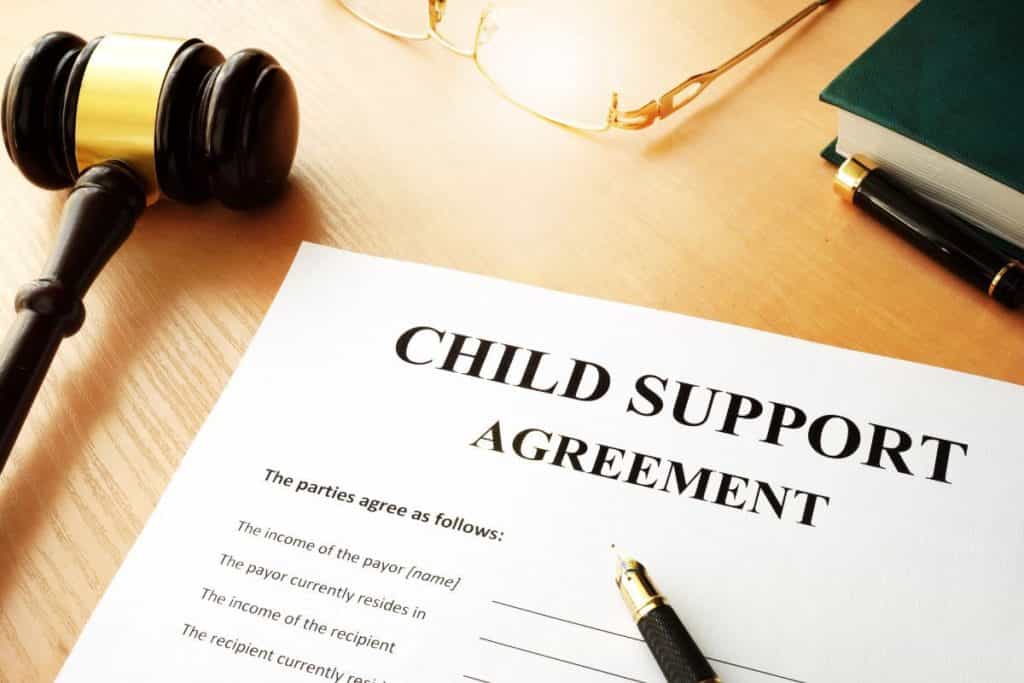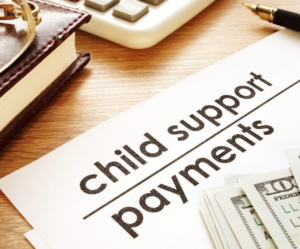
How does child support work in Arizona? Every state has adopted guidelines setting automatic rates of child support and alimony based on certain criteria related to family income and the number of children in the household. Arizona child support laws are based on the Arizona Child Support Guidelines.
Once you have read our extensive FAQs pertaining to child support laws in Arizona, please contact our experience child support lawyers near you in Arizona!

What is child support used for?
Child support, despite parents parting ways in the marriage, is to ensure that expenses and necessities are not a financial burden to the custodial parent. Child support in Arizona is used to cover basic needs of the child ad sometimes additional expenses in raising the child as deemed by the court.
What is child support supposed to cover?
The basic needs that are covered in child support often include clothing, food, accommodations for the child (such as the rent or mortgage of the custodial parent), means of transportation for the child to get him/her to school, home, family visits, etc.
Other things that child support can cover is health insurance costs, tuition of the child is in private school, child care such as daycare, tutoring, and anything the court deems is required in the upbringing of the child.
How is the amount of child support determined in Arizona?
Under the Arizona child support guidelines, the total support approximates what the parents would have spent on the child if they were living together as one family. Under this shared income approach, each parent is required to contribute a proportionate share of his and her income. Generally, the non-custodial parent will be ordered by Arizona court to pay a percentage of his or her gross monthly income to the custodial parent in child support.

By application of the guidelines, the amount of support to be paid is calculated after considering many factors, including both parents’ gross incomes, the child’s medical expenses, work-related daycare expenses, any extraordinary expenses and the number of children residing in the home, among other things. The amount of support resulting from calculations performed under the guidelines is presumptively the correct amount to be ordered by the court in any action to establish or modify child support. The court may deviate from the guidelines’ result, however, when necessary to avoid an inappropriate or unjust result in a particular case.
What is Included in Gross Income for Purposes of Calculating Child Support in Arizona?
Under the Arizona Child Support Guidelines, gross income is broadly and flexibly interpreted, and very inclusive. When calculating child support in AZ, the parents must include their wages, interest on stock investments, bank accounts, retirement accounts, capital gains, veterans’ benefits, prizes and awards, lottery and gambling winnings, insurance and workers’ compensation benefits, pensions and annuities — that is, income from just about any source.
Can the parents agree to an amount of child support in their separation agreement?
Yes, they can. If the separation agreement extended child support for a longer period of time than the legal presumptions require, and that was made a part of the court’s order, then a longer period of support would be enforceable. The parties may also agree to an amount above that required by the child support guidelines. For example, the parents may include additional support payments sufficient to provide for private schooling, college, vocational education, travel, or summer camp.
Because both parents are responsible for paying child support in Arizona, there is almost always a payment from one parent or the other. The exception to that would be if, over a sustained period, both parents earned identical incomes and spent identical hours with their child. Although that is a possibility, it is not very likely to occur.
Does the custodial parent always receive child support payments in Arizona?
Almost always. Every parent has a legal duty to support his or her natural or adopted child. Although the custodial parent typically receives child support payments from the noncustodial parent, that is not an absolute. Although unusual, if appropriate under the unique circumstances, the judge may order the custodial parent to pay child support in AZ. Child support payments are in an amount calculated to meet the reasonable needs of the child for health, education, and maintenance, taking into consideration the incomes, child care costs, health insurance costs, and so on, of each parent.
Check out our podcast on “Can I trade Child Support for Parenting Time?”
How long is child support paid in Arizona?
 The court sets a termination date in the child support order. Child support is presumed to terminate on the last day of the month of the youngest child’s 18th birthday, that is, the youngest child covered by the support order. If the court finds that the youngest child is unlikely to finish high school by age 18, then the support terminates on the last day of the month of anticipated graduation or on the child’s 19th birthday, whichever happens first.
The court sets a termination date in the child support order. Child support is presumed to terminate on the last day of the month of the youngest child’s 18th birthday, that is, the youngest child covered by the support order. If the court finds that the youngest child is unlikely to finish high school by age 18, then the support terminates on the last day of the month of anticipated graduation or on the child’s 19th birthday, whichever happens first.
The court may order child support to continue beyond that child’s age of majority, into adulthood. For the court to order such support, the adult-child must have a significant mental or physical disability that prevents him or her from living independently.
Does child support in AZ automatically reduce when one of my children emancipates?
No, not automatically. You must go to court to get the child support in AZ reduced if your child is emancipated. If you do not go to court, then you will not get the overpayment back.
Will virtual visitation with my children reduce my child support obligation?
No, virtual visitation will not reduce your child support. Virtual visitation, or e-visitation, is intended to supplement and enhance parent-child communication and is not intended to be a substitute or replacement for face-to-face interaction. The time involved in e-visitation does not reduce the noncustodial parent’s child support obligation and is not a justification for the custodial parent’s relocation.
Contact one of our Arizona child support lawyers near you today! 602-548-3400
Questions from clients on child support laws in Arizona
My husband just recently went to court to increase the child support order for his daughters mother as she wasn’t paying the 30% she was supposed to. Her mother had a second child 9 months ago, so according to the calculator that gives her a $303 deduction that makes her calculator come to $0. At mediation, the mediator confused my husband and convinced him her child support would be zero, even though this deduction is discretionary and not mandatory. Her mother ended with a $0 child support order and also is being allowed to claim her 50% of the years for taxes while my husband has Full financial responsibility of his daughter, and also has full custody of his daughter so she lives with us full time and only sees her mother 3 nights a month. Is this possible for her child support to be zero simply because she has a second child? Is it possible for her to be allowed to claim her 50% of the years with 0% child support paid?
While unusual that a person would have $0.00 obligation on child support, this result is certainly possible and based upon the Arizona Child Support Guidelines as it states the needs are for the supported child, but this a “worst case” scenario. As noted, the “other child” credit on the child support guidelines is a discretionary credit, both as to application, and to amount. The credit that populates in the support calculator is the maximum credit allowed by law. Generally, the Court will adjust this credit, or not give it at all, if applying the credit resulted in the child support order being $0.00.
The Court wants to see all children treated fairly and not be disproportionately burdened by a parent’s low income status. It is also possible that the tax exemption was shared instead of given solely to the Obligee based on an agreement of the parties or by prior court order that was not addressed. Statutorily, the tax exemption is to be split in proportion to financial responsibility, so if you have zero responsibility you should not be entitled to share in the exemption.
This provision is modifiable however upon agreement of the parties. It sounds like the parties in this case met with a conference officer who worked out a stipulation between the parties. Unfortunately, these conference officers are not attorneys and have very little, if any, legal training and because of this often negotiate agreements that do not follow the letter of the law. Depending on when the order was entered, you may be able to file to have a new trial held on those issues that the conference officer portrayed as the law that were misstated or misconstrued.
My wife and i have two children that are under 2, if we want to do 50/50 custody, do either side of us have to pay child support?
Potentially, yes but it depends upon several factors. To get a rough idea take a look at our child support calculator and see the different possibility of child support in Arizona. Parents are also free to negotiate a higher or lower amount of child support to be paid (this is called a deviation) so long as they agree it’s in the best interest of the child. Typically the court will want to make sure this agreement will not have a material adverse impact on the children.
Is bah and bas included in gross income when determining child support percentage?
Basic Housing Allowance (BAH) and Basic Allowance for Subsistence (BAS) are included as income when determining child support in AZ. The Arizona Child Support Guidelines as per child support laws in Arizona, defines gross income as “income from any source,” and further states that “expense reimbursement or benefits received by a parent in the course of employment . . . shall be counted as income if they are significant and reduce personal living expenses.”
A new child support order has been filed from the state of Florida after the previous order was fulfilled in November of this year. I was not notified of this action and now two thirds of my military retirement and one half of my civilian pay is being garnished. I believe my ex spouse may have falsified documents, which she has attempted in the past, in order to ensure I was unable to defend myself or provide financial information to the court, prior to enacting this new support order modification. I am an Arizona resident and the case originated in Florida. My ex spouse lives in Virginia, with my 18 year old daughter.
Interstate child support orders involve very complex issues as to jurisdiction. The issues mentioned sound even more complex given the fact that we have a military pension and a garnishment is being deducted from two sources of income. Generally speaking the most that can be deducted from an income source is one-half of the net income to be dispersed to the payee. Given that is a general guideline, it would appear that a wage garnishment of two-thirds of an income source (military retirement) is in violation of the applicable statutes governing wage withholdings.
Further, garnishment from only one source of income is allowed if that source collects enough to cover the totality of the order. If one or either of the garnishments covers your entire monthly obligation than withholding from both sources would be inappropriate. Given the complexity of the situation I highly recommend you calling our office and speaking with Jennifer Mihalovic.
To learn more about child support and wage garnishment under Arizona child support laws, consider reading the following articles:
Modification of Child Support Orders
Military Pension Garnishment Requirements
I have been going to court since October 2014 for paternity and child support establishment. At the first hearing, paternity had been established and the court ordered a no past support judgement in favor of the obligee (my sons mother) for reasons that she failed to appear for the hearing and that I had been incarcerated from 2006-2013. In February 2016, my son’s mother again filed for child support. The petition asks for future support and the areas where past support and support for past expenses not to exceed 3 years has been crossed out. At this hearing, my son’s mother asked that the petition be withdrawn. The judge asked her if she was sure of her decision and told her that this would be her that this would be the last time she would see er on this issue. Then again in June of 2016, she filed again for child support. This time a new judge has been assigned to the case and she is asking for future support, past support for expenses for up to 3 years, and cost for past medical care. My first question is if the judge already ordered a no past support order can that be changed? And can I ask to have the original judge continue to see my case? My son will turn 18 a month after this next court date.
It sounds like the Division of Child Support Services (DCSS) is involved in this case. If they are, an Assistant Attorney General will be present at the hearing. Always bring the prior pleadings to the AAG’s attention. Unfortunately, nobody can pick the judicial officer assigned to a particular case. Judges rotate between divisions (civil, criminal, family, etc.), in addition to retirements and resignations. A judged assigned to a particular case can be “noticed” and removed but nobody can pick the replacement as it’s a random selection. It is not possible to guess how a Judge will rule on any issue, however your chances of success improve if you hire an attorney to represent you. A person representing themselves need to be fully prepared and make sure to bring copies of all of the prior paperwork that you reference as the Judge may want to review it. Current child support may be ordered if your son is in high school past his 18th birthday and past support can be ordered up to 3 years but if a prior order was in place with no past support and no current support it seems unlikely another judge would go back 3 years. This is a unique situation and may require a consultation so we can help you with more specific detailed information.
My child is 16, participates in club soccer, takes saxophone lessons, is involved in school clubs, plays high school soccer and takes AP classes. These are all activities she has routinely participated in for a long time. I am trying to determine if these types of expenses are part of the basic child support or is child support designed for a roof over her head, food in her mouth and clothes on her back. I would like to include something in our divorce decree to have these expenses split between her dad and me but need to know if child support is supposed to cover these. Her dad is reluctant to consider them separately since he thinks the amount of child support from the calculation based on salary covers these. We aren’t divorced yet but going through the process.
When asking “what is child support supposed to cover?”, the simple answer is that child support is intended to cover all the needs of the children. In that regard it encompasses food, shelter, clothing and the like. When it comes to extra-curricular activities such as the ones described, there is no statutorily required way to handle the expenses. In cases where there is an existing order and the child is subsequently enrolled in an activity, generally speaking the child support will be all that is legally required from the other parent, unless they voluntarily want to contribute to those extra-curricular expenses.
However, in the case described, since support is still being established, you can request, and the Court can order, that the other parent pay some or all of the cost of the activities. How much the other parent will be responsible for would depend on a number of factors including his/her income, his/her proportionate share of your combined income, and any disparity in income.
Going through a divorce, my wife has many rentals(like 11) and will be her main source of income for child support(the house is her because is in prenup and acquired before marriage), i have my full time job, what happen if she decides to sell all the house this year so she doesn’t have her monthly “income”, what will it affect to child support calculation next year because she’s not receiving income each month, do i end up paying her back if currently i’m receiving it?
For the purpose of this question, an assumption is being made that the rental property income is the only source of income. If the rental properties are sold, the court has a couple of different options that they may use to calculate income going forward.
They could attribute her the income that she previously earned, or they could attribute her income based on her age, skills, training, ability, and educational background. In any event, unless she is documented and verified as disabled and unable to work in any capacity, the court will use some form of attributable income in the event she does not have actual income.
Child support calculations are only done upon motion to the court so it is unlikely that a future change in income would change the child support in Arizona, unless one of you filed something with the court to get it changed. If current circumstances result in her paying you child support, and that changes at some point in the future to you paying her child support, you could potentially have an over-payment, due to the delay between filing the modification and obtaining the final order. In that case she may have a claim to the amounts overpaid however she would not be able to seek repayment of those amounts until the youngest child on the order emancipates.
I currently have an open child support order through DES. My children’s father has not paid anything in over a year. How can I enforce the order? DES doesn’t seem to making any real moves.
You are always free to file a petition to enforce the child support order under Arizona child support laws, even if you have a case with DES and they have chosen not to proceed. Depending on the facts, the court can enforce the order by entering a judgment against the non-paying parent, setting a purge (a lump sum payment that goes toward the arrears and is paid to stay out of jail), and sending the non-paying parent to “Accountability Court” where his monthly payment will be monitored on a month-by-month basis. Do you know why DES is not acting?
Generally they will file a request to enforce so long as they have a valid address for the person and they are not receiving disability payments (being disabled is a valid basis for non-payment of support). I would recommend going into the DES office and finding out exactly why they are not proceeding despite your request to do so. Once you have that information call us to set up a consultation and we would be happy to sit down with you and work out a plan to get your case back into paying status.
Drivers license suspended due to back child support what are my options?
Unfortunately your options when the State is involved are pretty limited. I would recommend that you contact your assigned caseworker to discuss payment options that will pay down your debt. The administrative remedies in place through the State, such as driver’s license suspension, are appealable in a civil action against the State, however these proceedings are quite costly, and in a lot of cases exceed the balance due on the debt. For those reasons making suitable payment arrangements with a representative of the state is your best option.
Contact one of our child support attorneys near you today! 602-548-3400
What Our Clients Have to Say About Child Support Attorneys Near You
“Colin Bell helped me with what I thought was a near impossible case and it worked out in our favor. I was so grateful I chose this firm and Colin to handle my case. My family and I are safer , thanks to Colin Bell.”
Jessica Brown
Rating: 5/5 ⭐⭐⭐⭐⭐
And read more of our 58+ Reviews on Google.